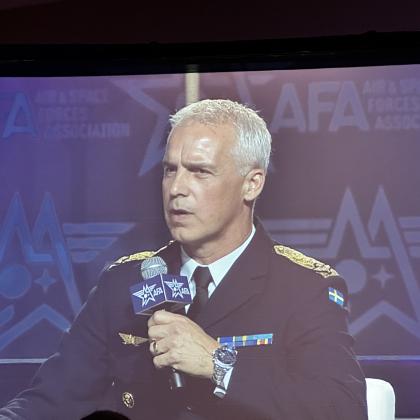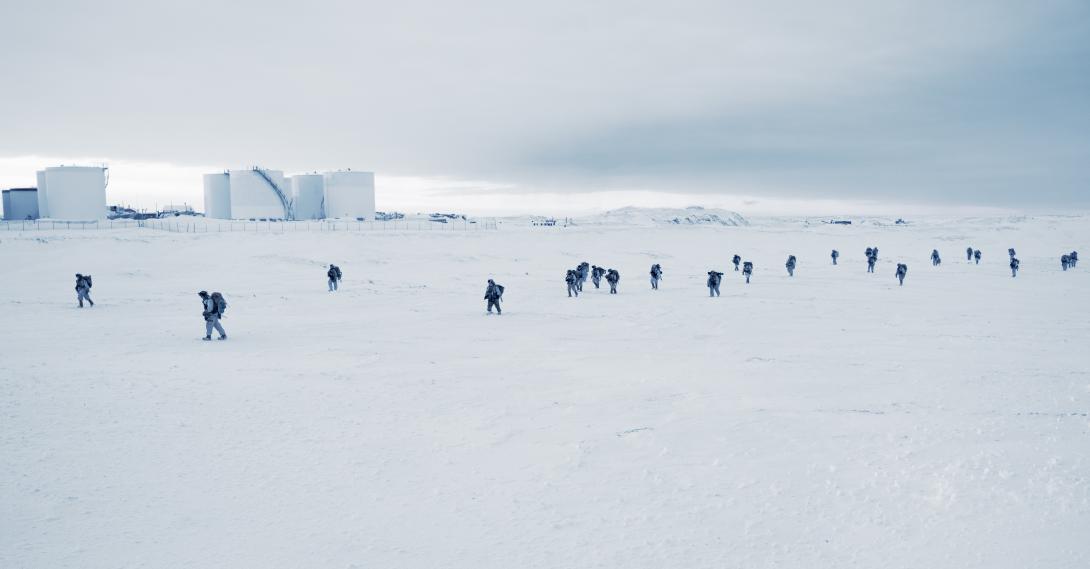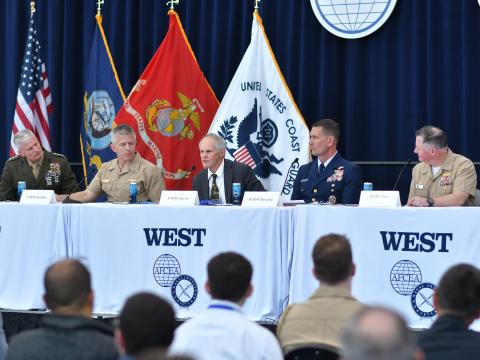Risks to Arctic Security
Recognizing the Arctic's strategic importance, the U.S. military has focused on growing its cold-weather operational capabilities in the region over the last decade. The U.S. Marine Corps, through host and NATO ally Norway, has maintained a long-term presence in the region to train and develop the skills necessary to operate in extreme conditions. The U.S. Navy, through its Second Fleet and the NATO Joint Force Command Norfolk, has extended its traditional North Atlantic naval activities into the Arctic Ocean. And the U.S. Air Force has long contributed to national security in the region, investing heavily in projecting air power in the Arctic.
It is not enough, however, for the United States to go at it alone. Russia’s increased activities in the polar region necessitate a coordinated NATO approach, according to several air force leaders from Arctic nations, who spoke at the Air and Space Forces Association's annual conference on September 17.
“A lot of things concern me when it comes to Russia and the Arctic,” warned Gen. James Hecker, USAF, commander, U.S. Air Forces in Europe. “When you look at their northern fleet, they have 55 icebreakers, 37 surface vessels and eight nuclear submarines. That’s a pretty big threat.”
For air power, Russia is extending its runways on airfields on the north side of its coast and on some of its Arctic islands to accommodate its long-range bombers. The U.S. Air Force is also seeing “much more” flight activity in the high north by the Russians.
“They are also increasing their domain awareness by adding radars and by adding satellites that they haven't had before,” Hecker noted. “So, they are getting a lot more information in that domain, further up north than they have had before. That concerns us."
With the ice melting, the Bering Strait is even more of a strategic waterway than it has been in the past, explained Lt. Gen. Case Cunningham, commander, Alaskan Command, U.S. Northern Command.
“Because the number of ice-free days in the summer across the northern sea route that travels across the top of Russia is becoming more and more each season, that means the shortest distance between Europe and Asia is across that northern sea route,” Cunningham clarified. “That is where you see a lot of the activities occurring.”
The more concerning aspect for the commander, however, is Russia's cooperation with the People’s Republic of China. The adversaries are flying bomber patrols together, just having completed their eighth patrol, which was the first one conducted in the U.S. Northern Command area of responsibility.
“The second piece of that is Russia providing access to China,” Cunningham stated. “Those bombers, the H-6Ks that took off, they took off from a Russian air base. That access is significant. And of course, the cruise missiles that could be carried—and let's be clear, they were not in that kind of profile—but that could be carried by those platforms are a threat.”
For Sweden, which joined NATO in March, the Russian military has never left the Arctic, said Maj. Gen. Jonas Wikman, chief of the Swedish Air Force.

We talk about how Russia is increasing their capabilities, but the one thing that is important for us to remember is that Russia has always been prioritizing the region.
“We talk about how Russia is increasing their capabilities, but the one thing that is important for us to remember is that Russia has always been prioritizing the region,” he noted. “They have invested in civilian and military infrastructure to operate in the region, and they are prepared to operate in that kind of environment.”
In addition, the Arctic region is the biggest arena for Russia to test new systems, stated Chief of the Royal Norwegian Air Force Maj. Gen. Øivind Gunnerud.
“It happens right in our backyard,” he said. “Actually, we try to keep track of it, and there is a lot of testing activity going on.”
Norway has also experienced electronic warfare from Russia’s hands, including jamming of GPS and jamming signals at some of its civilian airports.
“What I find most disturbing is that Russia is an Arctic country that is both willing to and capable of attacking a neighboring country,” Gunnerud said.




Comments